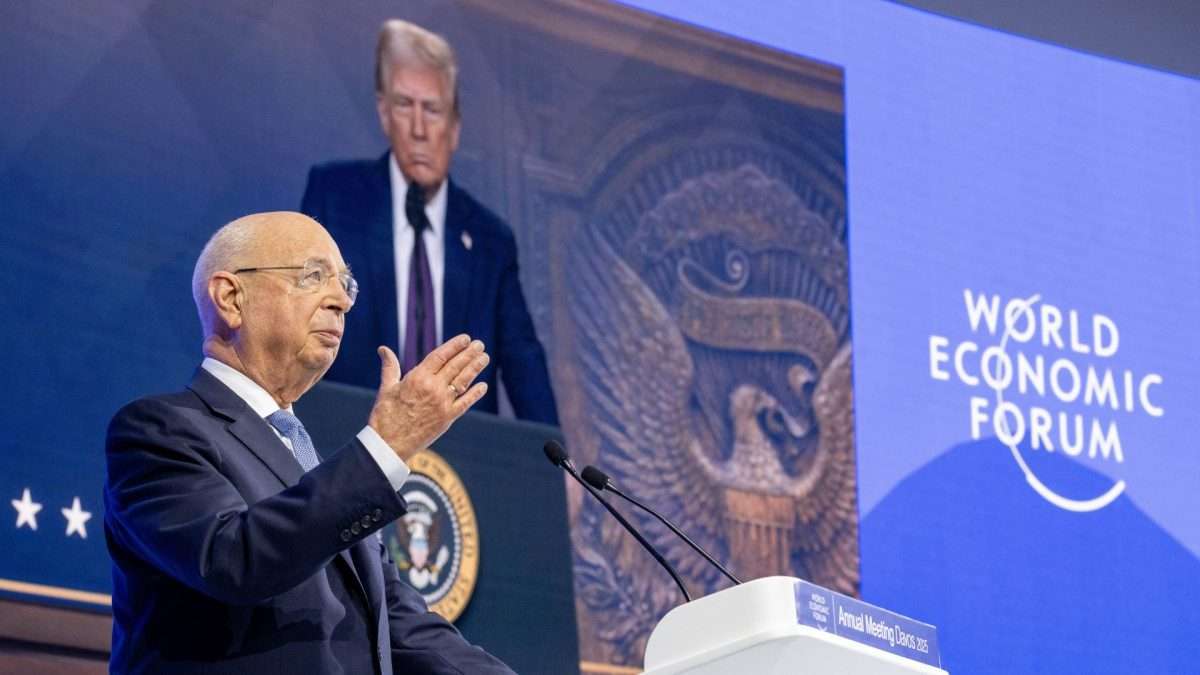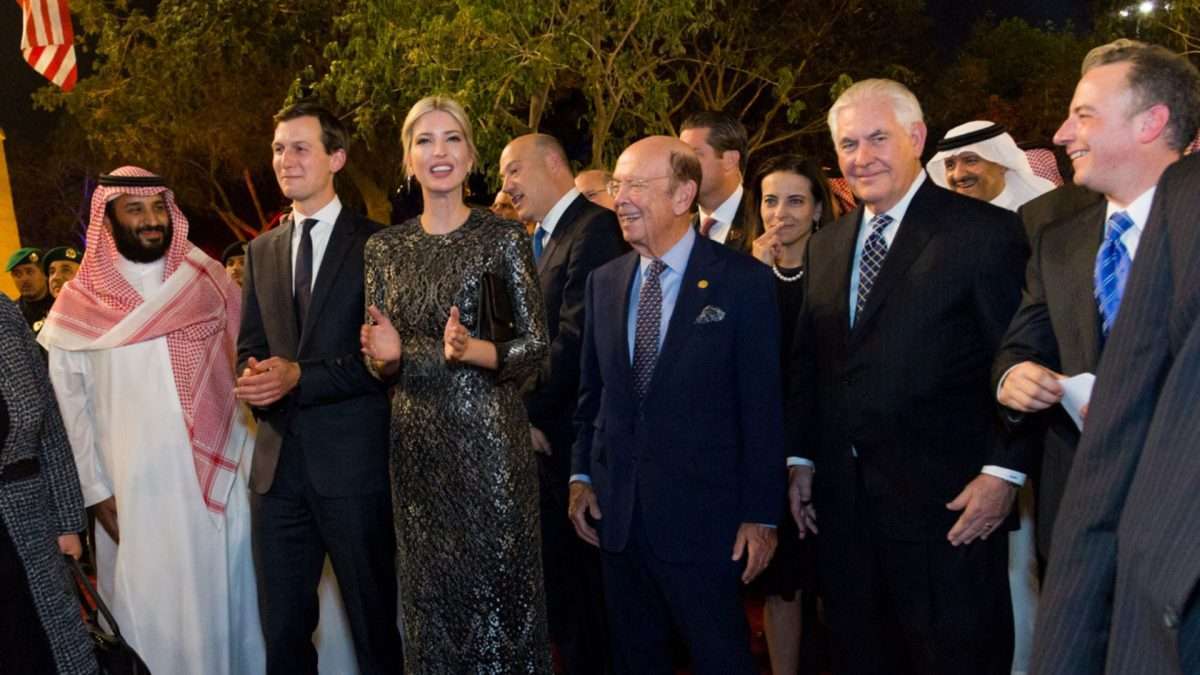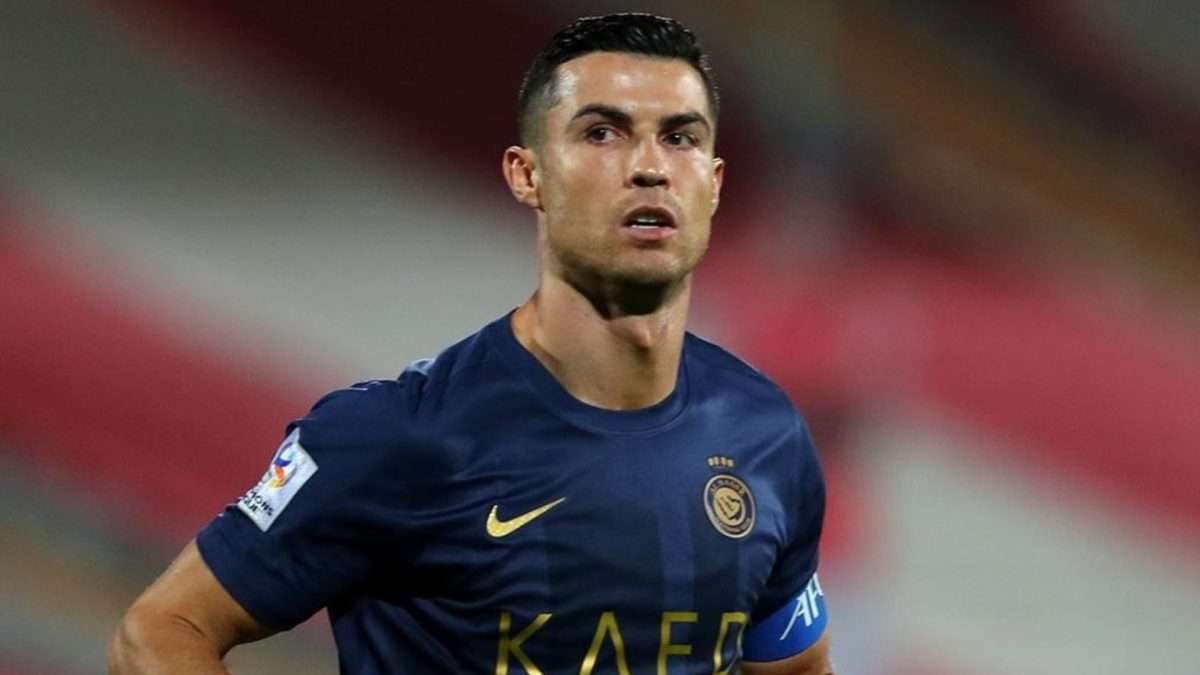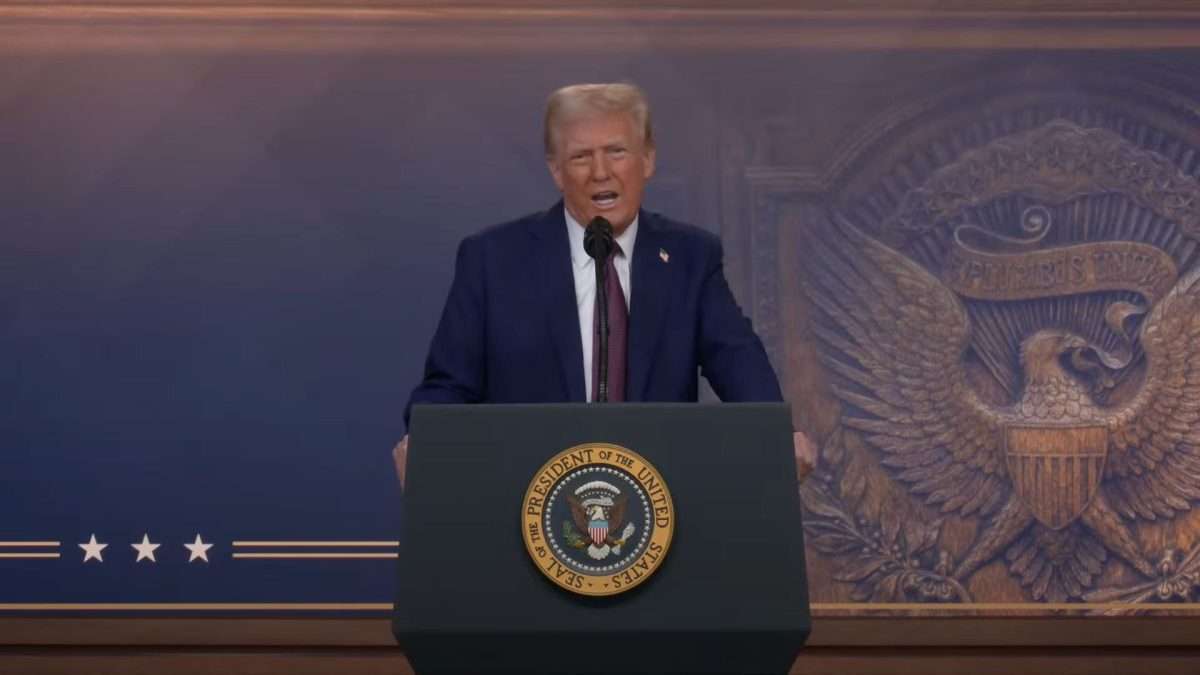President Donald Trump addressed the World Economic Forum remotely on Thursday, delivering an emphatic “America First” message to an audience of global elites.
After proclaiming the arrival of the “Golden Age of America” and lambasting his predecessor, Trump turned his attention to the business leaders and statesmen in the audience, alternating between enticements, demands, and threats.

Trump Makes the Saudis An Offer They Can’t Refuse
Among the recipients of Trump’s praise and pressure were Saudi Arabia and its Crown Prince Mohammed bin Salman, also known as MBS.
Notably, MBS was the first foreign leader Trump spoke to by telephone after his inauguration on Monday.
Trump’s family business interests have become intertwined with the kingdom and many of its energy-rich neighbors, including Qatar and the United Arab Emirates.

In his remarks at the economic forum, Trump hailed MBS as “a fantastic guy” while mentioning reports of his $600 billion U.S. investment pledge. He then casually asked the de facto Saudi Arabian ruler to “round it out” to $1 trillion.
Rounding off to the nearest trillion is certainly an audacity few other than Trump can pull off.
Trump then dropped the pleasantries and played his other favorite act — tough guy — giving Riyadh’s ruler a sort of ultimatum.
He commanded Saudi Arabia and OPEC “to bring down the cost of oil.”
“You gotta bring it down,” Trump demanded. Then he proceeded to suggest that the Saudis and the cartel they lead were effectively enabling Russia’s war in Ukraine by forcing elevated oil prices. “They’re responsible for what’s taking place [in Ukraine],” the president alleged.
Can the Saudis Do It?
After Trump’s address, Blackstone founder Steve Schwarzman, part of a Davos panel that interviewed the president, joked, “I’m sure the crown prince of Saudi Arabia will be really glad you gave this speech today.”
Now MBS’s palms probably aren’t sweating. He and other Middle East leaders have become quite familiar with Trump’s ways, which to some extent mirror their own.
But the problem for MBS is that he can only ramp up his investment in the U.S. or introduce more crude supply to lower the price of oil, presently trading at just under $80 per barrel. MBS certainly can’t do both — and even the latter would be very difficult.
The reason is this: MBS needs oil prices at around $100 per barrel to fund his high-risk, capital-intensive domestic projects associated with his Vision 2030 initiatives, including the futuristic city Neom, the 2034 FIFA World Cup, and more.

The scale of many of these projects has been reduced as Riyadh grapples with a budget crunch at home amid the fall in oil prices. Despite the heavy spending, the Saudi Arabian economy is slowing. The International Monetary Fund lowered its forecast for Saudi Arabia’s economy, projecting it to grow at 3.3% in 2025. It estimates the kingdom’s GDP grew at just 1.4% in 2024 and shrank in 2023.
Saudi Arabia’s sovereign wealth fund, the Public Investment Fund (PIF), which would probably lead the U.S. investment initiative, has been retooled to focus on domestic investments and support Vision 2030’s so-called “giga projects.”
These projects, some of which are of dubious real economic value and may end up as white elephants, are seen as vital for Saudi Arabia’s transformation to a post-oil economy, stabilizing society, and cementing MBS’s rule.
Trump’s designs are more limited, one hopes. He wants oil prices to come down so he can pressure the Federal Reserve to lower interest rates — and to offset his other inflationary policies.
Unlike Trump, MBS faces no term limits and the unlikelihood of a graceful exit, should the need ever arise. The Saudi Arabian leader may end up appeasing the lame-duck Trump by making a $1 trillion pledge he has no intention of fulfilling. But actually following through on them could mean hastening his own demise.
Arif Rafiq is the editor of Globely News. Rafiq has contributed commentary and analysis on global issues for publications such as Foreign Affairs, Foreign Policy, the New Republic, the New York Times, and POLITICO Magazine.
He has appeared on numerous broadcast outlets, including Al Jazeera English, the BBC World Service, CNN International, and National Public Radio.



